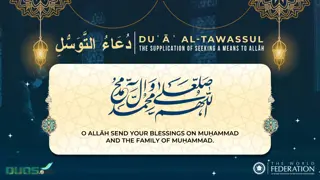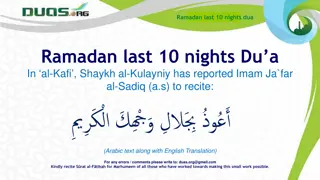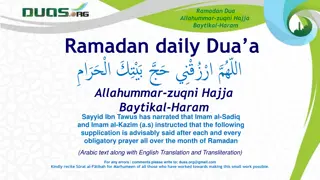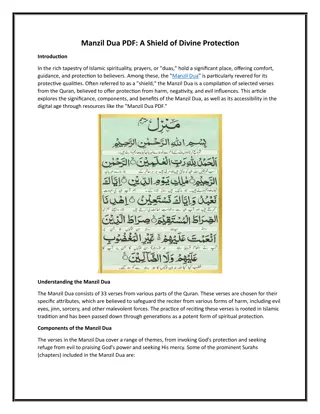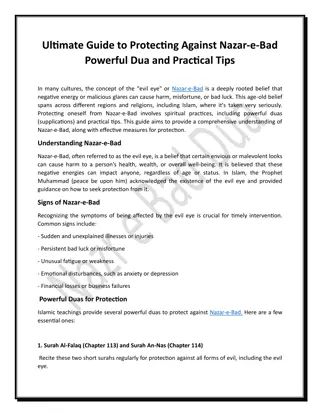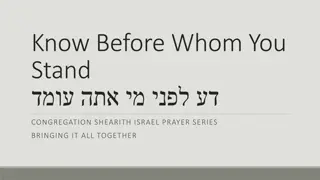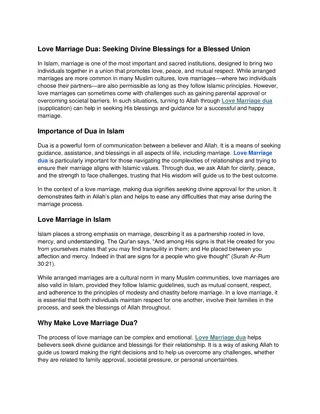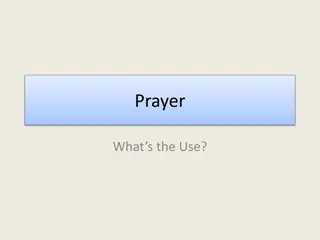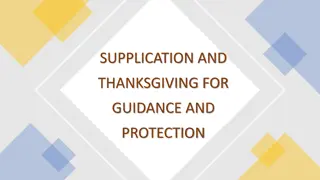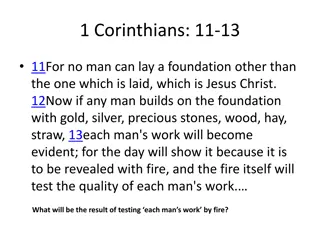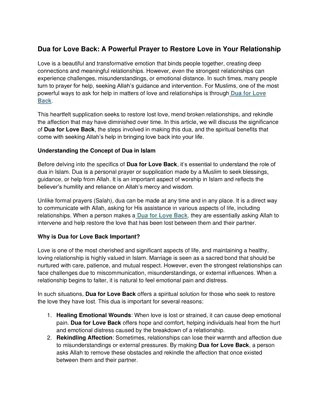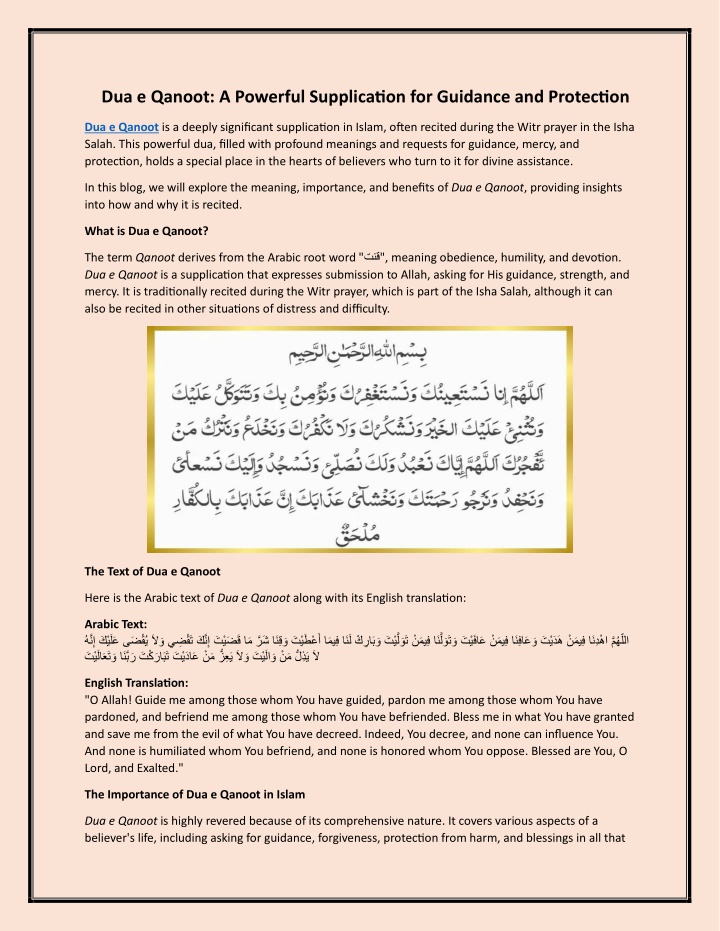
Dua e Qanoot: A Powerful Supplication for Guidance and Protection
Dua e Qanoot is a beautiful and powerful supplication that captures the essence of humility, submission, and reliance on Allah. It is a reminder for believers to seek Allahu2019s guidance, protection, and blessings in every aspect of life. //surah
Download Presentation

Please find below an Image/Link to download the presentation.
The content on the website is provided AS IS for your information and personal use only. It may not be sold, licensed, or shared on other websites without obtaining consent from the author. If you encounter any issues during the download, it is possible that the publisher has removed the file from their server.
You are allowed to download the files provided on this website for personal or commercial use, subject to the condition that they are used lawfully. All files are the property of their respective owners.
The content on the website is provided AS IS for your information and personal use only. It may not be sold, licensed, or shared on other websites without obtaining consent from the author.
E N D
Presentation Transcript
Dua e Qanoot: A Powerful Supplication for Guidance and Protection Dua e Qanoot is a deeply significant supplication in Islam, often recited during the Witr prayer in the Isha Salah. This powerful dua, filled with profound meanings and requests for guidance, mercy, and protection, holds a special place in the hearts of believers who turn to it for divine assistance. In this blog, we will explore the meaning, importance, and benefits of Dua e Qanoot, providing insights into how and why it is recited. What is Dua e Qanoot? The term Qanoot derives from the Arabic root word " ", meaning obedience, humility, and devotion. Dua e Qanoot is a supplication that expresses submission to Allah, asking for His guidance, strength, and mercy. It is traditionally recited during the Witr prayer, which is part of the Isha Salah, although it can also be recited in other situations of distress and difficulty. The Text of Dua e Qanoot Here is the Arabic text of Dua e Qanoot along with its English translation: Arabic Text: English Translation: "O Allah! Guide me among those whom You have guided, pardon me among those whom You have pardoned, and befriend me among those whom You have befriended. Bless me in what You have granted and save me from the evil of what You have decreed. Indeed, You decree, and none can influence You. And none is humiliated whom You befriend, and none is honored whom You oppose. Blessed are You, O Lord, and Exalted." The Importance of Dua e Qanoot in Islam Dua e Qanoot is highly revered because of its comprehensive nature. It covers various aspects of a believer's life, including asking for guidance, forgiveness, protection from harm, and blessings in all that
one has been granted by Allah. The dua is also a reminder of Allahs ultimate authority in determining our fate, reinforcing the believer s reliance on His mercy and wisdom. The recitation of Dua e Qanoot during the Witr prayer is a Sunnah (recommended act) of the Prophet Muhammad (PBUH). By following this practice, Muslims can bring their hearts closer to Allah, seeking His help and reaffirming their trust in Him. Benefits of Reciting Dua e Qanoot 1.Strengthens Connection with Allah Reciting Dua e Qanoot fosters a deep sense of spiritual closeness to Allah, helping believers express their devotion, obedience, and reliance on Him. 2.Guidance in Life The supplication asks for guidance among those who are rightly guided, ensuring that a believer walks the righteous path in life under Allah s protection. 3.Protection from Harm One of the key components of Dua e Qanoot is the request for protection from evil and harm, making it a powerful shield against misfortune and hardship. 4.Gratitude and Humility By acknowledging Allah s blessings and asking for more barakah (blessings) in what He has granted, a believer shows gratitude and humility, which are central to Islamic teachings. 5.Ease in Times of Distress Dua e Qanoot is often recited during difficult times, such as in times of war or calamity, as it brings peace and comfort to the heart, knowing that one has sought Allah's help in times of need. How to Recite Dua e Qanoot Dua e Qanoot is recited in the last unit (rak'ah) of the Witr prayer during the Isha Salah. After completing the recitation of Surah Al-Fatiha and another Surah, the believer raises their hands and recites Dua e Qanoot before going into Rukoo (bowing position). While it is most commonly recited in the Witr prayer, Dua e Qanoot can also be recited during times of need or distress, such as during calamities or hardships. Conclusion Dua e Qanoot is a beautiful and powerful supplication that captures the essence of humility, submission, and reliance on Allah. It is a reminder for believers to seek Allah s guidance, protection, and blessings in every aspect of life. By reciting Dua e Qanoot, especially during the Witr prayer, one can strengthen their connection to Allah and navigate life s challenges with His divine support. Incorporating Dua e Qanoot into your daily prayers not only fulfills a Sunnah but also brings immense spiritual benefits, granting peace, protection, and divine guidance in both good and difficult times.





